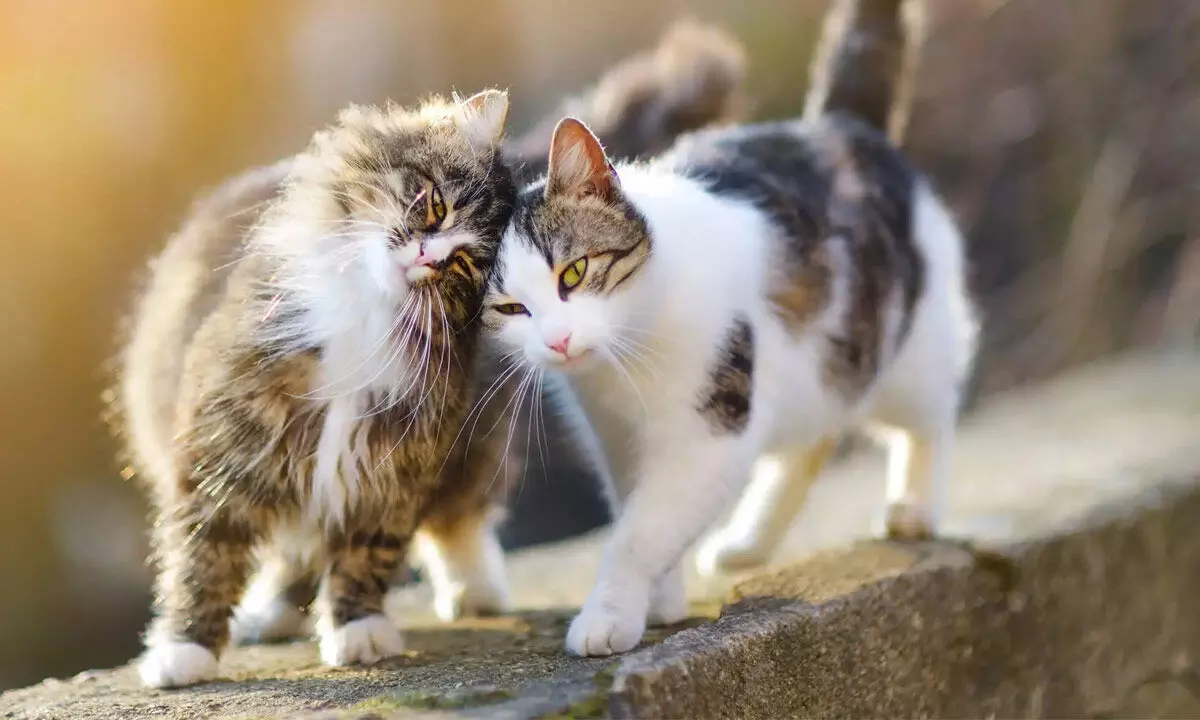Indoor vs. Outdoor Cats: Nutritional needs and playtime routines

When it comes to caring for cats, whether they live indoors or outdoors can greatly influence their nutritional needs, physical health, and playtime activities.
When it comes to caring for cats, whether they live indoors or outdoors can greatly influence their nutritional needs, physical health, and playtime activities. As a veterinarian from Drools Pet Food, want to shed light on the differences between indoor and outdoor cats, and how pet owners can strike a balance in caring for their feline companions.
Nutritional Differences
Indoor Cats: Indoor cats lead a relatively sedentary lifestyle, which can make them prone to weight gain and obesity. Since they have less space to roam and limited opportunities for physical activity, their energy expenditure is lower compared to their outdoor counterparts. This means that indoor cats require a diet that is lower in calories but rich in essential nutrients to prevent excess weight gain. A quality indoor cat food formula should include high-quality proteins to support muscle maintenance and low fat content to prevent unnecessary weight gain. Additionally, indoor cats benefit from fiber-rich foods to aid digestion and reduce the risk of hairball formation, which is common due to increased grooming.
Outdoor Cats: Outdoor cats, on the other hand, are generally more active and engage in hunting, climbing, and exploring their environment. This high-energy lifestyle means they require a diet that provides more calories to fuel their activities. Outdoor cats also have greater exposure to potential threats like harsh weather, parasites, and diseases, so their diet should include vitamins and antioxidants to strengthen their immune system. Proteins and fats are key nutrients for outdoor cats, as these help them maintain a healthy weight and provide the energy needed for their adventures. Omega-3 and Omega-6 fatty acids are also beneficial to keep their coat and skin in optimal condition, particularly since outdoor cats are exposed to varying environmental conditions.
Balancing Care and Playtime
For Indoor Cats: Indoor cats need stimulation and regular exercise to maintain both physical and mental health. Providing them with interactive toys, climbing structures, and puzzles can help mimic the challenges they would naturally encounter outdoors. Playing with your indoor cat for at least 15-30 minutes a day can go a long way in preventing boredom and promoting a healthy weight.
In terms of nutrition, portion control is essential for indoor cats. It’s important to measure their food and offer smaller, more frequent meals throughout the day. Including fiber in their diet can prevent overeating and improve their digestion.
For Outdoor Cats: Outdoor cats naturally engage in more exercise, but they may also face higher risks such as accidents, injuries, and exposure to parasites. It’s crucial to regularly check your outdoor cat for signs of health issues and keep them up-to-date on vaccinations and parasite prevention treatments.
Outdoor cats should have access to clean water and a balanced diet that supports their active lifestyle. While they may catch small prey, it’s essential to provide them with a consistent supply of nutritious food to ensure they receive all the necessary nutrients.
Striking the Right Balance
Whether indoor or outdoor, cats thrive when their diet and playtime routines are tailored to their lifestyle. Indoor cats need a focus on portion control, low-calorie nutrition, and plenty of play opportunities to keep them physically and mentally engaged. On the other hand, outdoor cats require a calorie-dense diet with immune-boosting nutrients and regular health checks to stay safe while exploring the world around them.
In conclusion, understanding the differences in nutritional needs and daily activities for indoor and outdoor cats helps ensure their overall well-being. At Drools, we offer specialized cat food that caters to the specific needs of both types of cats, providing them with the balanced nutrition they need for a happy, healthy life.
(The writer is a Veterinary Product Executive, Drools Pet Food)











